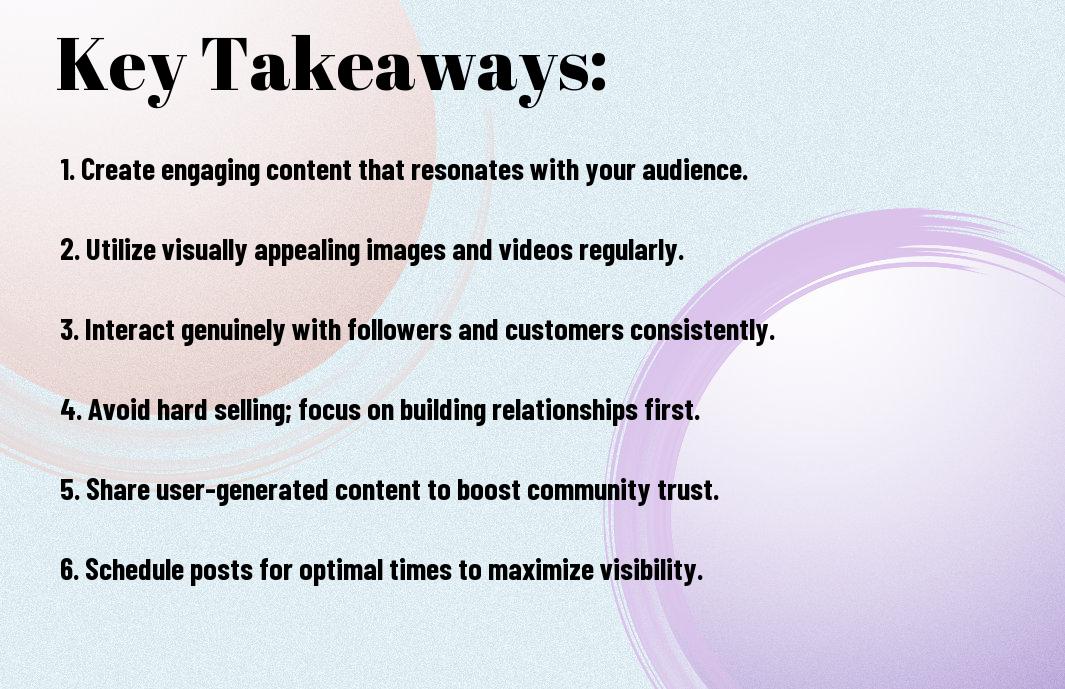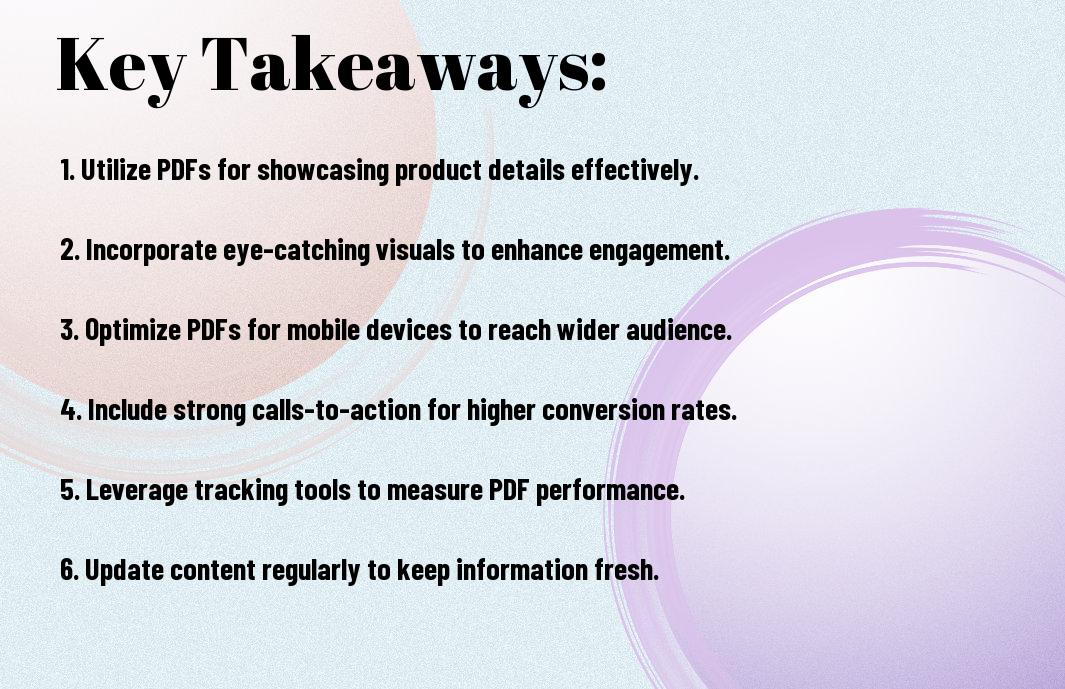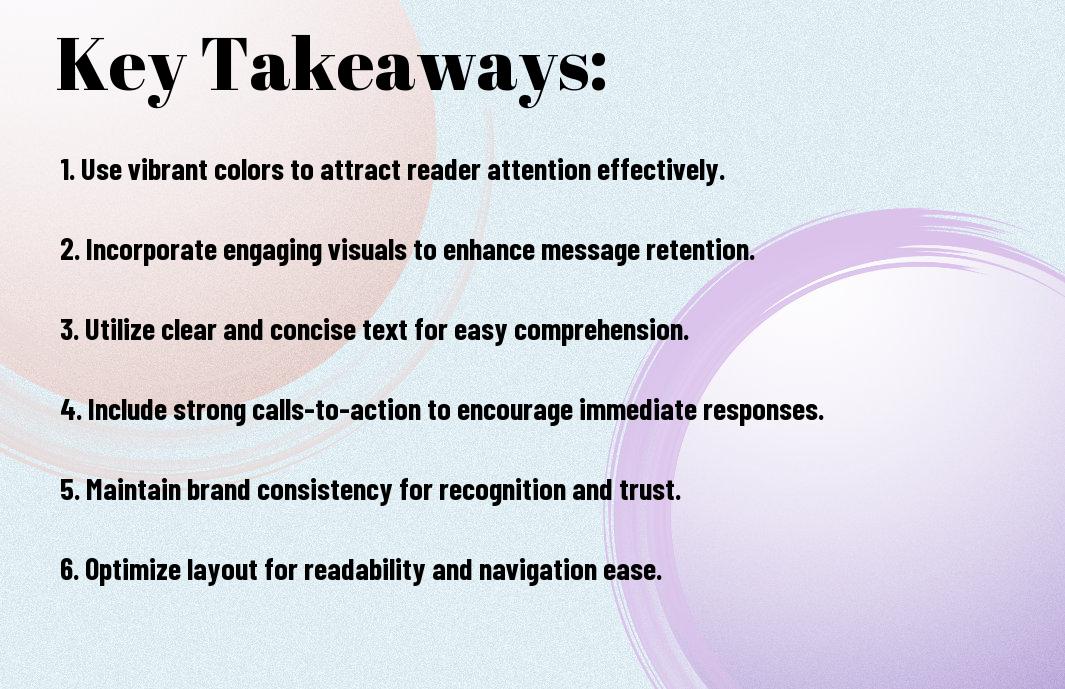As you navigate the world of social media marketing, you’re likely looking for ways to effectively promote your products to your target audience. You want to increase your online presence and drive sales, but you need to do it in a way that resonates with your followers. Your social media strategy can make or break your brand’s success, and understanding what works and what doesn’t is imperative to achieving your goals. You will learn how to promote your products successfully on social media platforms.
Key Takeaways:
- Be authentic and transparent when promoting your products on social media platforms, as users can easily spot insincerity and may be turned off by overly promotional content.
- Use high-quality visuals and engaging captions to showcase your products in a compelling way, and make sure to include a clear call-to-action to drive sales or website traffic.
- Monitor and respond to comments and messages from customers in a timely and personalized manner, as this can help build trust and loyalty with your audience and increase the effectiveness of your social media marketing efforts.

Social Media Landscape
While navigating the social media landscape, you’ll find numerous platforms to promote your products, each with its unique features and user demographics, allowing you to tailor your marketing strategy to your target audience.
Platform Selection
Against the backdrop of a crowded online market, you need to choose the platforms that best align with your brand and products, considering factors such as user engagement and content sharing.
Audience Demographics
By understanding the demographics of your target audience, you can create content that resonates with them, increasing the effectiveness of your promotional efforts on social media platforms.
Consequently, as you probe deeper into audience demographics, you’ll discover that your target audience’s age, location, and interests play a significant role in determining the type of content and platforms you should use to promote your products, enabling you to make informed decisions about your social media marketing strategy and maximize your online presence.
Content Strategy
Any effective social media promotion starts with a well-planned content strategy, allowing you to showcase your products in a way that resonates with your audience, helping you to achieve your marketing goals.
Brand Voice Alignment
For instance, you should ensure that your social media content aligns with your brand’s voice and tone, creating a consistent message that your audience can trust and engage with, which will help you build a strong brand identity.
Visual Guidelines
Above all, your visual content should be high-quality and consistent, making it instantly recognizable as your brand, which will help you stand out from the competition and capture your audience’s attention.
Understanding the importance of visual guidelines, you can develop a style that reflects your brand’s personality and aesthetic, using colors, fonts, and imagery that resonate with your target audience, and applying this style consistently across all your social media platforms, will help you create a strong visual identity that supports your overall content strategy and promotes your products effectively.
Engagement Rules
After establishing your online presence, you need to engage with your audience effectively. You can learn more about social media etiquette by visiting 20 Do’s and Don’ts of Social Media in 2025 to improve your online strategy.
Timing and Frequency
With the right timing, you can increase your post’s visibility and reach a larger audience, so you should consider the best times to post on social media to maximize your engagement.
Community Management
For effective community management, you need to be proactive and responsive to your followers’ comments and messages, as this will help you build trust and loyalty with your audience.
For instance, you can assign a team to monitor your social media accounts and respond promptly to any inquiries or concerns, ensuring that your audience feels valued and heard, which will ultimately lead to a positive experience with your brand.

Common Pitfalls
Unlike other marketing strategies, promoting your products on social media requires a delicate balance to avoid turning off your audience. You need to be aware of the common mistakes that can harm your brand’s reputation and affect your sales.
Overselling Mistakes
Against the temptation to constantly promote your products, you should focus on providing value to your followers, as overselling can lead to a decrease in engagement and a loss of trust in your brand.
Platform Misuse
Beside the content itself, the way you use each platform is also important, as using a platform in a way that is not consistent with its intended use can be seen as spammy and harm your reputation.
In fact, you should take the time to understand the unique characteristics and best practices of each platform, and adapt your strategy accordingly, to get the most out of your social media marketing efforts and avoid common pitfalls. You can use this knowledge to create a strong online presence and effectively promote your products to your target audience.
Measurement Metrics
All your social media efforts need to be measured to understand their impact, and you can learn more about Social Media Dos And Don’ts to improve your strategy.
Performance Indicators
By tracking your performance indicators, you can identify areas that need improvement and adjust your strategy accordingly, allowing you to optimize your social media presence.
Analytics Tools
For effective measurement, you will need to utilize analytics tools that provide insights into your social media performance, helping you make data-driven decisions.
Further, analytics tools offer a wide range of features, such as tracking engagement metrics, monitoring follower growth, and analyzing content performance, which enables you to refine your social media strategy and increase your online presence, allowing you to reach your target audience more effectively and achieve your marketing goals.
Compliance Guidelines
Your social media promotional activities must adhere to the rules and regulations set by each platform, as well as federal and state laws, to avoid any potential issues or penalties.
Platform Policies
Along with understanding the laws, you need to familiarize yourself with the specific policies of each social media platform you use, as they can vary significantly and impact your promotional strategies.
Disclosure Requirements
Requirements for disclosing sponsored content or affiliations with your products are in place to protect consumers, and you must follow them to maintain transparency and trust with your audience.
Disclosure is crucial when promoting products on social media, as you are obligated to clearly indicate when a post is sponsored or if you have a financial interest in the product, helping you build credibility and avoid legal issues.
Final Words
With these considerations, you can effectively promote your products on social media platforms. You will increase your online presence and reach a wider audience by following the dos and avoiding the don’ts. Your social media strategy will be successful, and you will achieve your marketing goals. You will be able to build a strong brand and engage with your customers, driving sales and growth for your business.
FAQ
Q: What are the most effective social media platforms for promoting my products?
A: The most effective social media platforms for promoting your products depend on your target audience and the type of products you are selling. For example, if your products are visually appealing, Instagram and Pinterest may be the best options. On the other hand, if your products are more service-based, LinkedIn and Twitter may be more suitable. It’s also important to consider the demographics of each platform and ensure they align with your target audience. By choosing the right platforms, you can increase your reach and engagement, ultimately driving more sales and revenue.
Q: How often should I post about my products on social media?
A: The frequency of posting about your products on social media depends on your audience and the platform you are using. As a general rule, it’s best to post at least once a day, but no more than 3-4 times per day. Overposting can lead to audience fatigue, while underposting can make your brand seem inactive. It’s also important to mix up the type of content you post, including a combination of promotional, educational, and engaging content to keep your audience interested. Additionally, consider using social media scheduling tools to help you plan and schedule your posts in advance.
Q: What type of content should I post to effectively promote my products on social media?
A: To effectively promote your products on social media, you should post a variety of content types, including high-quality product images and videos, customer testimonials, user-generated content, and educational content that highlights the benefits and features of your products. You should also consider using social media ads, such as Facebook and Instagram ads, to reach a wider audience and drive traffic to your website. Additionally, utilizing influencer marketing and running social media contests can help increase engagement and drive sales.
Q: How can I engage with my audience and build a community around my products on social media?
A: Engaging with your audience and building a community around your products on social media is key to driving sales and loyalty. You can do this by responding to comments and messages in a timely and personalized manner, asking for feedback and suggestions, and running social media contests and giveaways. You should also consider using social media analytics tools to track your engagement and adjust your content strategy accordingly. Additionally, collaborating with other brands and influencers in your industry can help expand your reach and build credibility.
Q: What are some common mistakes to avoid when promoting my products on social media?
A: Some common mistakes to avoid when promoting your products on social media include overposting, being too promotional, and not engaging with your audience. You should also avoid buying followers or using fake accounts to inflate your numbers, as this can damage your credibility and lead to account suspension. Additionally, not tracking your analytics and adjusting your strategy accordingly can lead to wasted time and resources. By avoiding these common mistakes, you can create an effective social media marketing strategy that drives sales and grows your brand.













